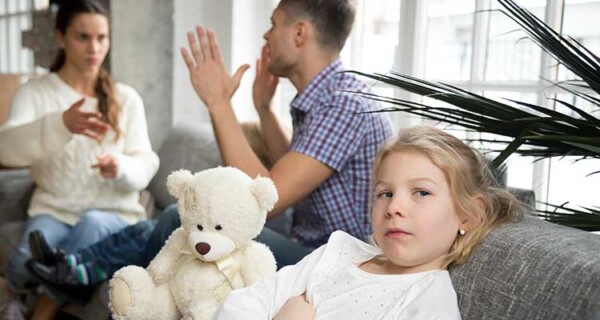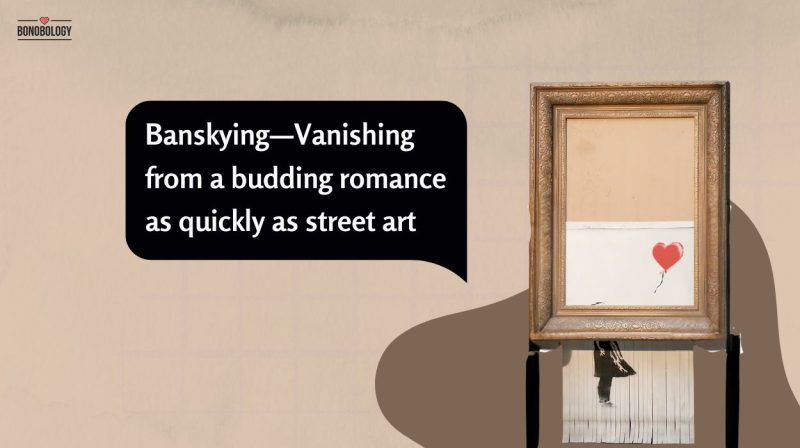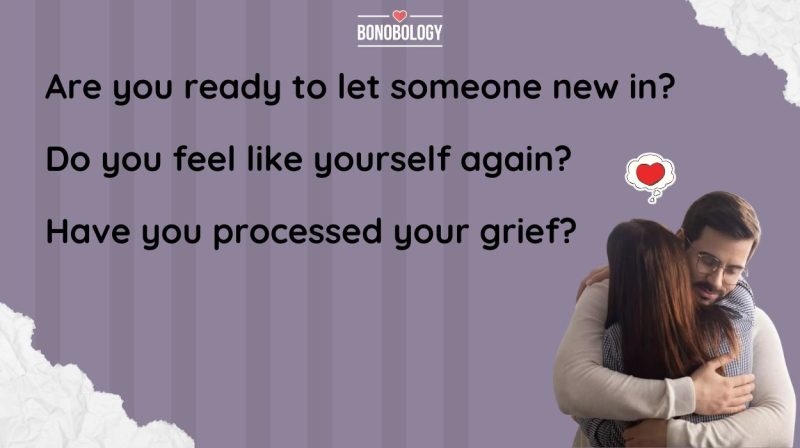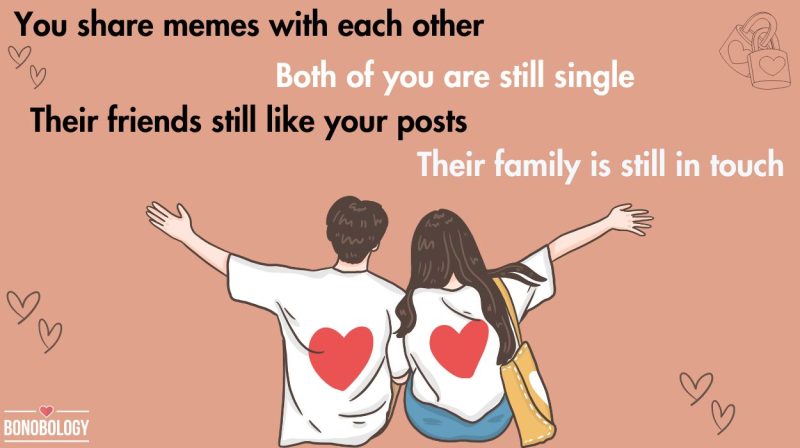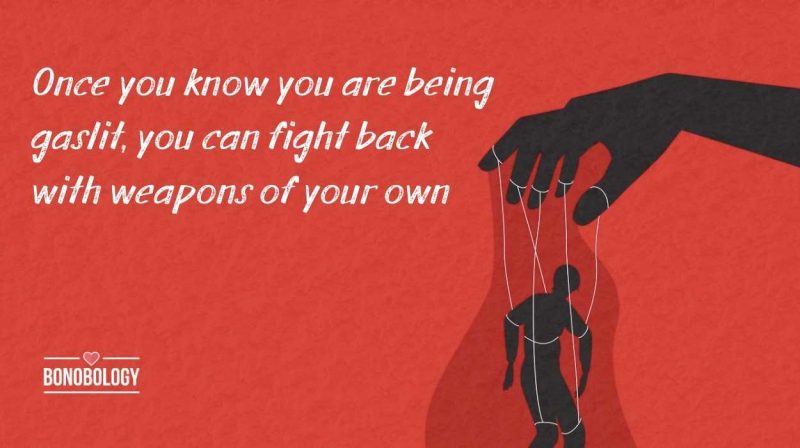Whenever we hit a rocky patch in our romantic interactions, we either blame our partners or ourselves for our troubles. For instance, if constant demand or need for attention has become a chronic issue in your relationship, you may blame your partner for being too needy or clingy or they may blame you for being too emotionally distant and detached. While on the surface it may seem like it is your individual issues that are causing trouble in paradise, the fact remains that the root of any and all conflict can be linked to the connection between adverse childhood experiences and relationships.
Yes, how you were raised affects relationships you forge as adults, particularly – but not limited to – romantic connections. Since these influences don’t operate on a conscious level, a lot of people go through life without self-awareness about why they tend to react to certain situations the way they do.
Why do you feel insecure? Why do you attract toxic people in your life? Why do you need your partner to make you feel whole? The answer to all of these questions lies in your childhood experiences and interactions with your primary caregivers (which in most cases are your parents).
No relationship issues between two adults are created in a vacuum. These are invariably tied to parental influence on relationships because we’re relational beings and our worldview, perceptions and the way we react to situations are shaped by our formative experiences. Your self-worth, self-esteem and sense of individuality are all tied to how well (or not) you were celebrated and cared for as a child.
That’s why understanding the influence of parent-child attachment on romantic relationships becomes imperative if you’re struggling with problematic patterns and behavioral tendencies. In this article, Dr Gaurav Deka (MBBS, PG diplomas in Psychotherapy and Hypnosis), an internationally acclaimed Transpersonal Regression Therapist and mental health and wellness expert, who specializes in trauma resolution, writes about the attachment styles psychology.
Attachment Styles In Relationships
Table of Contents
To fully understand the correlation between childhood trauma and romantic relationships or even the intricacies of parental influence on relationships, we need to explore the different attachment styles. The attachment styles in relationships are a sum total of your earliest experiences with love, care and nurturing.
In other words, the way your parents made you feel as a child goes on to govern how you interact with and react to intimate connections as adults. Here are the 4 attachment styles that decode parental influence on relationships:
Related Reading: 15 Signs You Had Toxic Parents And You Never Knew It
1. Secure attachment style
Of the different attachment styles, this one is the most holistic. A person with a secure attachment style can form coherent, harmonious relationships. They’re empathetic, capable of setting healthy boundaries and feel more secure and stable in romantic partnerships.
These people do not have unrealistic expectations that a relationship will be without issues or correspond to a certain idea of perfection. Instead, they’re open to accepting flaws and problems as they arise, and willing to seek help when necessary.
Relationship with the primary caregiver
People with this attachment style are on the opposite end of the spectrum of childhood trauma and abusive relationships. They were raised by primary caregivers or parents who were available and attuned to their needs as a child.
The parents were able to make the child feel secure, understand them, and were there to soothe them in times of distress. Since they were made to feel secure and safe in their earliest intimate interactions and their changing emotional needs were not only acknowledged but also addressed, their nervous system was equipped to be ‘securely attached’.

2. Avoidant-dismissive attachment style
The avoidant-dismissive attachment style offers a clear glimpse into how closely adverse childhood experiences and relationships are connected. A person with this attachment style finds it hard to cope with emotional intimacy.
They prioritize their freedom and independence above all else, and therefore, can quickly feel stifled when intimacy or closeness takes hold in their relationships. These people often get accused of being emotionally distant by their partners. Owing to the sense of unease that comes from a feeling of closeness, avoidant-dismissive people tend to push their partners away, lie to them, have affairs or even end their relationships just to reclaim the sense of independence they’re accustomed to.
Related Reading: When married to an emotionally distant spouse
Relationship with the primary caregiver
This type of attachment style stems from being raised by parents who were unavailable or rejecting of them in their childhood. Since they couldn’t count on their parents to meet their emotional needs, they were forced to self-soothe.
This leads them to distance themselves emotionally even from those closest to them, including romantic partners. The entire foundation of their personality is built on avoiding intimacy and seeking independence, even if these are the very things that cause them distress.
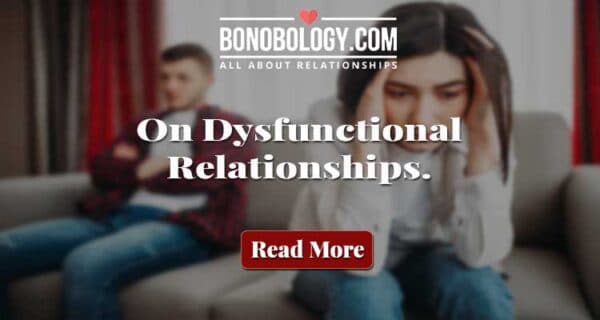
3. Anxious-ambivalent attachment style
This attachment style means that you were anxious as a child and grew up to be ambivalent as an adult. People with this attachment style tend to be overly needy, clingy and have a way of overwhelming their partners. This clinginess can often cause them to push their partners away, which further fuels their sense of insecurity or anxiety and yearning for closeness.
These are people who struggle with low self-esteem issues and feel unsettled by boundaries or space in a relationship. Their entire self-worth rests on how they’re treated in their relationship, and they need constant reassurance of love from their partners.
Relationship with the primary caregiver
This attachment style is often the result of being raised by parents who were ambivalent themselves. Perhaps as parents, they were confused about their role and hence inconsistent in their approach.
Anxious-ambivalent people are raised by parents who were responsive and present at certain times and distracted or unavailable at others. This inconsistency stirs in them a constant fear over whether or not their needs will be met. A behavior they carry in their adult relationships as well.
Related Reading: Here’s How Being Clingy In A Relationship Can Sabotage It
4. Disorganized attachment style
This is the textbook example of the connection between childhood trauma and abusive relationships. People with this attachment style attract abusive partners or toxic relationships. They feel that they do not deserve affection or love in even their most intimate relationships and tend to seek drama.
Of the different attachment styles in relationships, this one can be the most unnerving since it stems from early exposure to or brush with abuse. Owing to these experiences, people with a disorganized attachment style never learn to self-soothe. They go through life feeling unsafe and frightened and bring these tendencies to their relationships as well.
Relationship with the primary caregivers
These are children who grew up with parents who shared a dysfunctional relationship and have witnessed a lot of shouting, screaming, abuse (physical or verbal) in their formative years. Since the primary caregivers were grappling with the trauma of their own, these people end up experiencing complex trauma, which builds up over the years.
Often, their parents become the source of both fear and comfort, triggering in them disorientation about how they’re supposed to navigate their relationships.
Adverse Childhood Experiences And Relationships
I hope these insights into attachment styles psychology helps you better understand the influence of parent-child attachment on romantic relationships. That’s why whenever people come to me asking me to work with their partners because they’re emotionally unavailable, too needy, have a proclivity for infidelity and so on, I tell them, “I’d much rather work with you.”
For the simple reason that how you were raised affects relationships. So, a person may see having an emotionally unavailable partner as their biggest problem, when, in fact, they ought to be focusing on why they attracted such a partner in the first place.

Getting to the root of parental influence on relationships is the key to being able to work through any and all issues you may have. Without it, any fix would be superficial at best. Sooner or later, you and your partner will fall into your old patterns and tendencies.
Childhood trauma and romantic relationships: Why do we become our parents in our interactions with our significant others?
Apart from problematic attachment styles in relationships stemming from childhood experiences, another way our formative interactions shape our behavior patterns is that we tend to start imitating their dysfunctional ways in our own intimate connections.
This happens because many a time people are unable to fully experience both their parents as individuals. One parent tends to exercise greater influence on the child’s psyche. The child views the other parent from the lens of the one they share a closer bond with.
For example, if one parent is struggling to cope with being cheated on by their spouse, they may influence the child’s view of the cheating parent. Since the child is a sum of both parents quite literally, as they carry both their genes, being made to look down upon one parent starts to feel like they are rejecting a part of themselves.
Related Reading: Why Do People Stay In Abusive Relationships?
In their attempt to absolve that part of all wrong-doing, a person may begin to mimic the same patterns that made them look down upon a parent. Even as adults, in their interactions with their parents, they go back to being that confused or scared child who seeks acceptance or wants to love both parents equally. So, by repeating their behavior patterns, they’re subconsciously telling one parent that the other isn’t so bad.
The bottom line is that our relationship issues are not individual issues. How you were raised affects relationships. So, don’t blame your partner or yourself, instead, look within and get to the bottom of what’s triggering your behavior patterns. That’s the only way to break free from – or at least healthily cope with – the vicious cycle of adverse childhood experiences and relationships.
6 Couples’ Experiences On How Talk Therapy Helped Their Relationships
Your contribution does not constitute a charitable donation. It will allow Bonobology to continue bringing you new and up-to-date information in our pursuit of helping anyone in the world to learn how to do anything.

